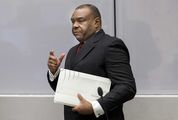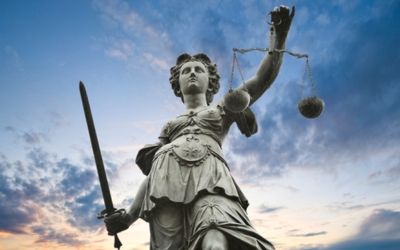I WAS not surprised when the Judicial Service Commission (JSC) announced that, yet again, there were not enough candidates to interview for a vacancy on the Constitutional Court.
Nowadays it is more likely than not that the JSC either extends the closing date for nominations (it being an open secret that the reason is not enough nominations) or has to readvertise. But I still cannot work out why. Judges, senior lawyers and legal academics should be falling over themselves to be justices of the Constitutional Court.
It is the highest court in SA, a jewel in the crown of our democracy, and its jurisprudence is a source of pride. Why would you not want to follow in the footsteps of Ismail Mahomed, Arthur Chaskalson and Pius Langa?
All judicial officers play a crucial role in SA’s democracy. I honour the magistrates who work themselves to the bone to administer justice in much less lofty conditions. But the Constitutional Court gets the most politically contentious cases and the most difficult questions of law. It guides all the lower courts. It cannot be overstated how important it is that the country’s best lawyers are appointed to it.
By best I do not mean the cleverest. I mean clever, humble, compassionate, morally brave, independent-minded women and men of unimpeachable integrity and with a real understanding of where we come from and where we are trying to go. The best bench also means a bench that broadly reflects SA’s population in terms of race an gender. So why are they not coming forward in sufficient numbers? A number of explanations have been offered over the years.
There are individual reasons, usually complex and personal. Another is the JSC’s interview style, which can sometimes make for a humiliating experience. If you want to be a judge of SA’s highest court, you are right to expect the most rigorous interview of your life. Unlike with our MPs and the government, there is really only one chance to get it right with judges.
But once appointed, Constitutional Court judges will face far worse than cringeworthy questions from the JSC. They will be hauled over the coals by the executive; called counterrevolutionary and such. Their judgments will be picked apart by academics. As with the recent Nkandla case, they will have to listen to argument while the singing outside gets so loud it is hard to concentrate. A tough interview should be no bar to the kind of people we need on the Constitutional Court.
Another explanation offered is that, unlike with the other courts, the Constitution gives the president a much bigger say in who gets appointed. In terms of the Constitution, the JSC will give the president a list — with three more names than the number of vacancies — and he gets to choose from that list after consulting the chief justice and leaders of the opposition parties. In practice, I hear, the chief justice has a lot of sway.
Some people think a number of brilliant candidates have declined the opportunity because there is no way President Jacob Zuma would appoint them; or that Chief Justice Mogoeng Mogoeng might not want them. There may be some validity to this. But it would not be unique to the incumbencies of either Zuma or Mogoeng — it has been a concern over the terms of the past three chief justices, at least.
The truth is the Constitution deliberately makes appointments to the Constitutional Court a more political process. And fair enough, it is a more political court. There are enough checks and balances built in elsewhere to protect judicial independence.
There is another explanation — the one that really worries me. It is a perception that the whole JSC process is just window-dressing and that the appointment has been negotiated and stitched up beforehand. Even in this latest instance I was told "word on the street" was that X was always going to get it. I won’t mention who X is because this is all just gossip.
I can defend, as I have, the sometimes brutal vigour of the interviews and the political nature of the appointment process. But the Constitution requires that every JSC member and the president approach the process with a mind open to persuasion.
However, it should also be remembered that, while there may be this perception, we sometimes get the unexpected from the JSC. It is entirely possible that even if a choice has been agreed beforehand, the JSC can up-end the plan.
• Rabkin is law and constitution writer



















Change: 1.19%
Change: 1.36%
Change: 2.19%
Change: 1.49%
Change: -0.77%
Data supplied by Profile Data
Change: -0.08%
Change: 0.12%
Change: 1.19%
Change: 0.00%
Change: 0.10%
Data supplied by Profile Data
Change: 0.32%
Change: 0.36%
Change: 0.33%
Change: 0.22%
Change: 0.23%
Data supplied by Profile Data
Change: -0.04%
Change: -0.51%
Change: -0.25%
Change: -0.17%
Change: -0.02%
Data supplied by Profile Data